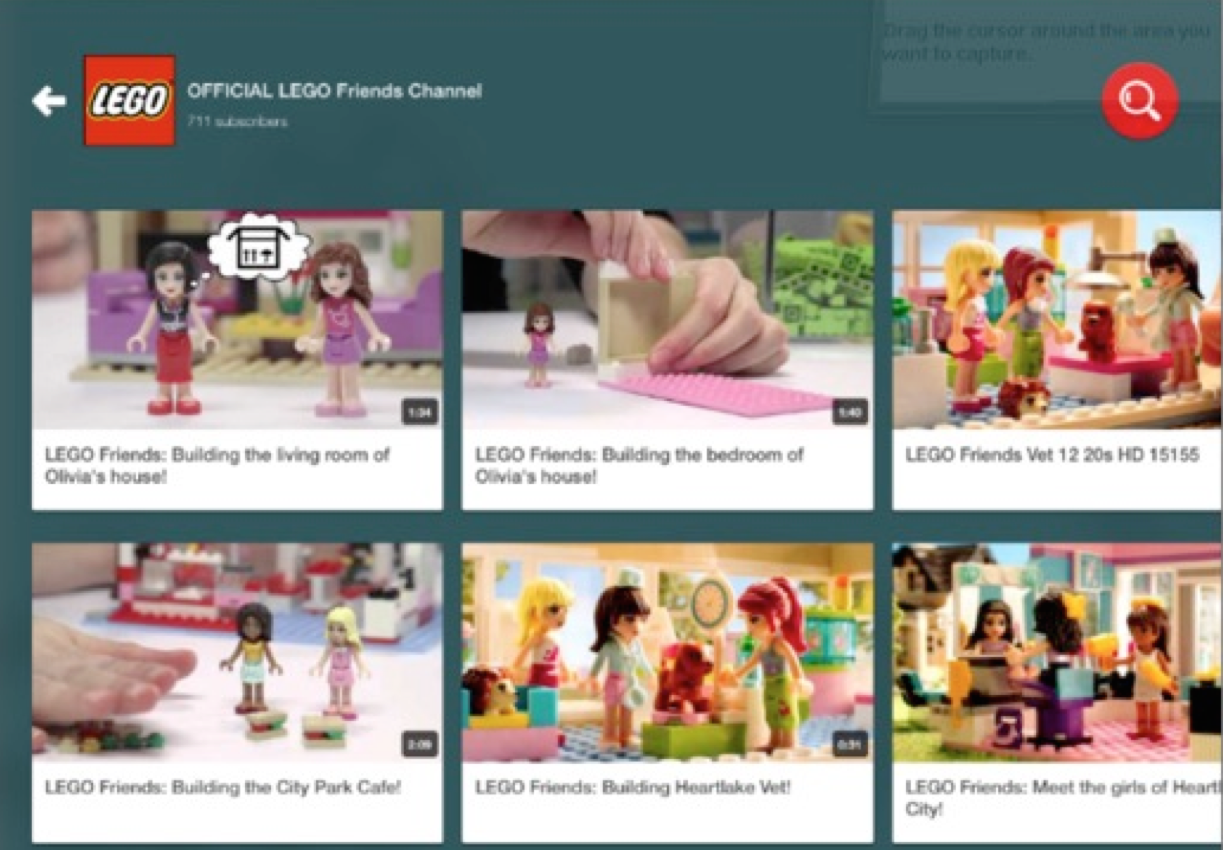YouTube Kids App Accused Of Deceptive, Excessive Advertising
 It’s only been a few weeks since Google launched its YouTube Kids app targeted at the youngest Internet users, and it’s already taking heat from consumer advocates who are asking federal regulators to investigate whether the service’s advertising practices run afoul of the law.
It’s only been a few weeks since Google launched its YouTube Kids app targeted at the youngest Internet users, and it’s already taking heat from consumer advocates who are asking federal regulators to investigate whether the service’s advertising practices run afoul of the law.
In a letter [PDF] sent today to the Federal Trade Commission, several advocacy groups — including the Campaign for a Commercial Free Childhood, the Center for Science in the Public Interest, the Consumer Federation of America, Consumer Watchdog, and Public Citizen — accuse Google of violating Section 5 of the FTC Act, which prohibits unfair and deceptive marketing practices.
According to the letter, there are at least three ways in which YouTube Kids is in violation of advertising guidelines.
“The videos provided to children on YouTube Kids intermix commercial and other content in ways that are deceptive and unfair to children and would not be permitted to be shown on broadcast or cable television,” reads the letter.
FCC guidelines for TV programs targeted at young children require that “program material be separated from commercials by intervening and unrelated program material,” and prohibits the use of “program talent or other identifiable program characteristics to deliver commercials” during or adjacent to a show featuring that character. There are also prohibitions against product placement and showing URLs for commercial websites during these shows.
But the letter accuses Google of intermixing “noncommercial and commercial offerings in such a way that children would not be able to identify which ones are ads.” The letter points out that the actual ads run during some shows are less commercial than the shows being watched, which can be show-length toy commercials.
Making matters more confusing, argue the advocates are “brand” channels for companies like McDonald’s, Barbie, Fisher Price, and LEGO.
“Videos on these channels are mostly advertising even though they are not labeled as such,” reads the letter, which calls out the LEGO Friends channel for having full-length shows featuring LEGO characters, shorter “webisodes” with these same characters, videos of real people playing with these LEGO mini-figs, and then actual commercials.
“There is no separation between the full episodes and the commercials,” write the advocates. “Moreover, because the traditional TV-style commercials feature the exact same LEGO Friends characters that appear in episodes of the adjacent program content, the entire channel is akin to what the FCC would consider a program-length commercial.”
Meanwhile, a McDonald’s YouTube Kids channel shows promotional videos like “What are McDonald’s Chicken McNuggests made of?” but does not identify these clips as advertising.
“Branded channels, such as the McDonald’s channel, take advantage of children because they do not understand that the entire channel is actually advertising,” argues the letter.
Google is also accused of allowing the posting of supposedly “user-generated” content in support of toys, candy and other items, when these posters allegedly have undisclosed relationships with the manufacturers they’re talking about. This would be a violation of the FTC rules requiring transparent disclosure of paid endorsements and testimonials in ads.
The letter contends that toy companies have affiliations with the hosts of supposedly independent channels, “in which the online talent endorses various products in exchange for some form of compensation, often toys or money,” but without disclosing this arrangement to viewers.
Finally, the letter takes issue with Google’s claim that all ads are pre-vetted by YouTube to make sure they comply with the app’s ad policies.
“[I]n fact, much of the content available on the app violates its own policies,” alleges the letter.
“There is nothing ‘child friendly’ about an app that obliterates long-standing principles designed to protect kids from commercialism,” says Josh Golin, Associate Director of Campaign for a Commercial-Free Childhood in a statement. “YouTube Kids exploits children’s developmental vulnerabilities by delivering a steady stream of advertising that masquerades as programming.”
Want more consumer news? Visit our parent organization, Consumer Reports, for the latest on scams, recalls, and other consumer issues.

